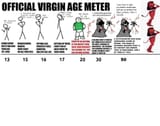>>82786603
Nearly everything (skills, combat maneuvers, class abilities etc) has specific, written mechanics. Heavy focus on character building and optimization. Over a dozen base classes + a dozen more hybrid classes plus hundreds of archetypes, thousands of feats, traits, and class features to customize character builds, freedom to multiclass and stack archetypes and class features, Dozens of separate skills with ranks assigned every level. Characters gain skill points and feats often which encourage build planning and long term progression and metagaming. Detailed rules for attacks of opportunity, flanking, combat maneuvers (trip, grapple, bull rush, etc.). Full-round, standard, move, swift, immediate actions. (Instead of just Action, Bonus Action, Reaction, Movement). Huge scaling numbers on pretty much everything, power fantasy to the max.
In pathfinder you cant just do something amazing because you think it would be cool if your character did it, there is literally a rule and system for everything and you need to invest in your character to perform feats that are beyond normal human capabilities. For example, in DnD you can usually get away with telling your DM you have your character do a backflip off the wall and plunge your sword into the dragon's eye to blind it. In pathfinder, you need to actually take your move action, pass acrobatics, pass your attack roll, deal damage, have a feat that allows you to blind on a simple attack (yeah right) and by the way you get AoO'd and knocked out of it anyway because the dragon threatens the vertical spaces you have to move through to do your stupid backflip.
That might sound incredibly lame but the gatekeeping and "rule for everything" is what makes building a character that CAN actually do ridiculously broken things like that so rewarding. In DnD its just storytelling with light RPG mechanics, Pathfinder is an actual RPG





